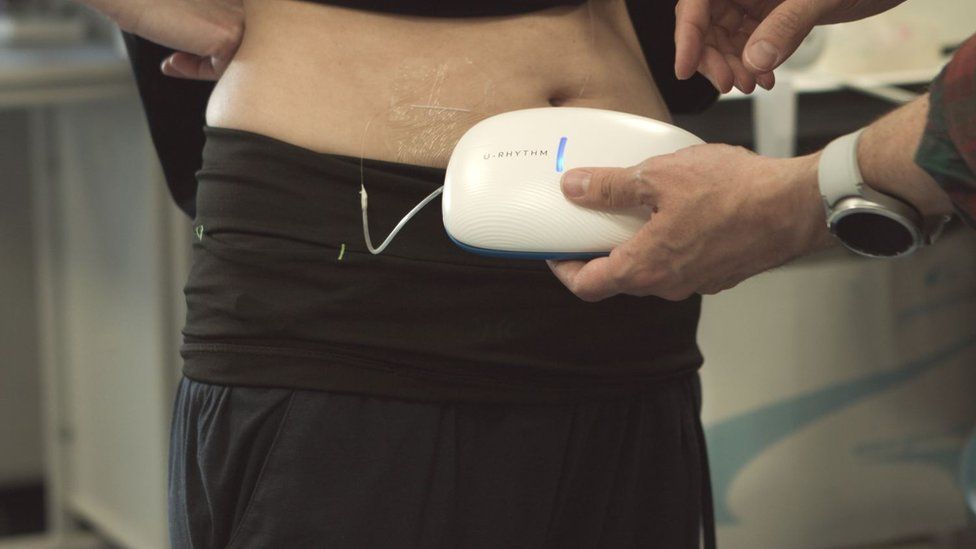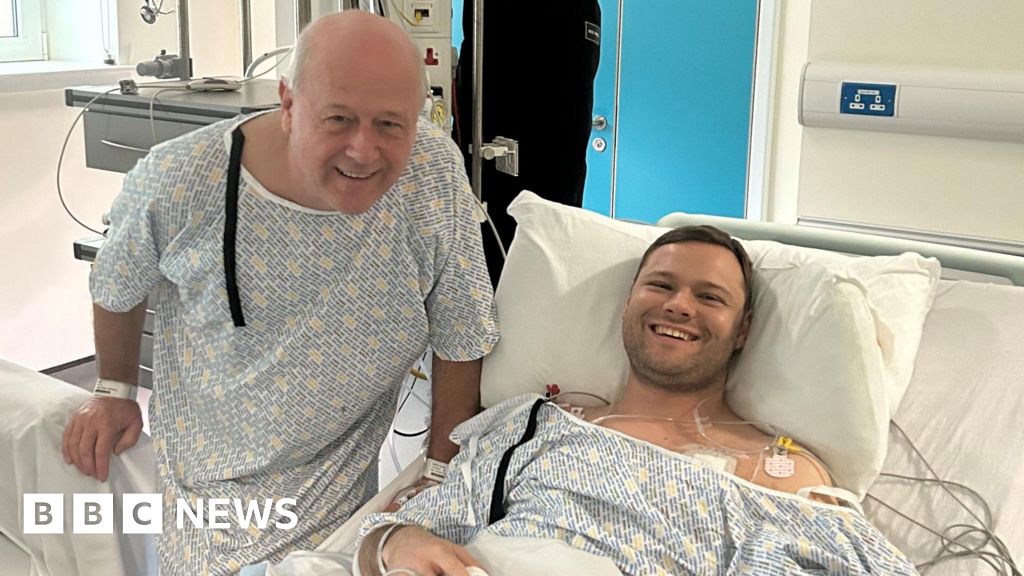ARTICLE AD BOX

A tiny tube pumps saline through the skin and picks up hormone levels as they occur
By Matthew Hill & Rhiannon Yhnell
BBC West health correspondent
Scientists say a new device could revolutionise the way we understand how our hormones work.
Developed by Bristol researchers, the U-Rhythm sensor has revealed the pattern of hormone levels over 24 hours in a "world-first" clinical trial.
By taking readings for up to 72 hours, scientists say it detects the early signs of hormonal disorders more accurately than tests taken once a day.
It could change how diseases of the stress hormone system are diagnosed.
The blood-free device is worn around the waist and takes samples from beneath the skin every 20 minutes. The method allows sampling during sleep, work, and other daily life activities for up to 72 hours each session.
It can spot signs of conditions caused by dysfunctional levels of stress hormones, like diabetes and Addison's disease, said researchers.
The universities of Bristol, Birmingham and Bergen collaborated on the project and said it was the first time changes have been measured in this way.
'Significant new insights'
Previously, the only way to assess if a person had the right amount of hormone levels was by taking multiple samples of blood during admission to a hospital or research unit, which can be time consuming, inconvenient and stressful.
Professor Stafford Lightman, a co-author on the study, explained: "Our results provide significant new insights into how the stress hormone system works in healthy people and emphasises the importance of measuring change, not just sampling at single points.
"It also highlights the importance of measuring hormones during sleep, which has previously been impossible outside of a hospital."
The study analysed samples from 214 healthy volunteers over 24 hours. By using data across that period, the team was able to create adrenal hormone profiles of healthy people in real-life conditions.
Prof Stafford Lightman says the new technology could identify the best time of day for individual patients to take medication
Mathematicians from the University of Birmingham's Centre for Systems Modelling and Quantitative Biomedicine used the findings to develop a new class of "dynamic markers" to better understand how a healthy hormonal profile should look, depending on an individual's sex, age, body mass index, as well as other characteristics.
"This is a fascinating new technology that is enabling us to make new discoveries about how hormonal regulation works," said Dr Eder Zavala, assistant professor in maths at the university and lead mathematician in the study.
Dr Thomas Upton, of Bristol University, the lead endocrinologist in the study, added: "The information we have gathered forms an entirely new reference range which has the potential to revolutionise how diseases of the stress hormone system are diagnosed and treated."
Dr Thomas Upton said the results represented "a paradigm shift" in the understanding of how the stress hormone system works in healthy people
The U-Rhythm sensor, which costs £10,000 per device, was developed with funding by an EU Horizon 2020 project grant.
Researchers hope it will eventually be made available for people to use at home.
Follow BBC West on Facebook, Twitter and Instagram. Send your story ideas to: bristol@bbc.co.uk

 1 year ago
46
1 year ago
46








 English (US) ·
English (US) ·